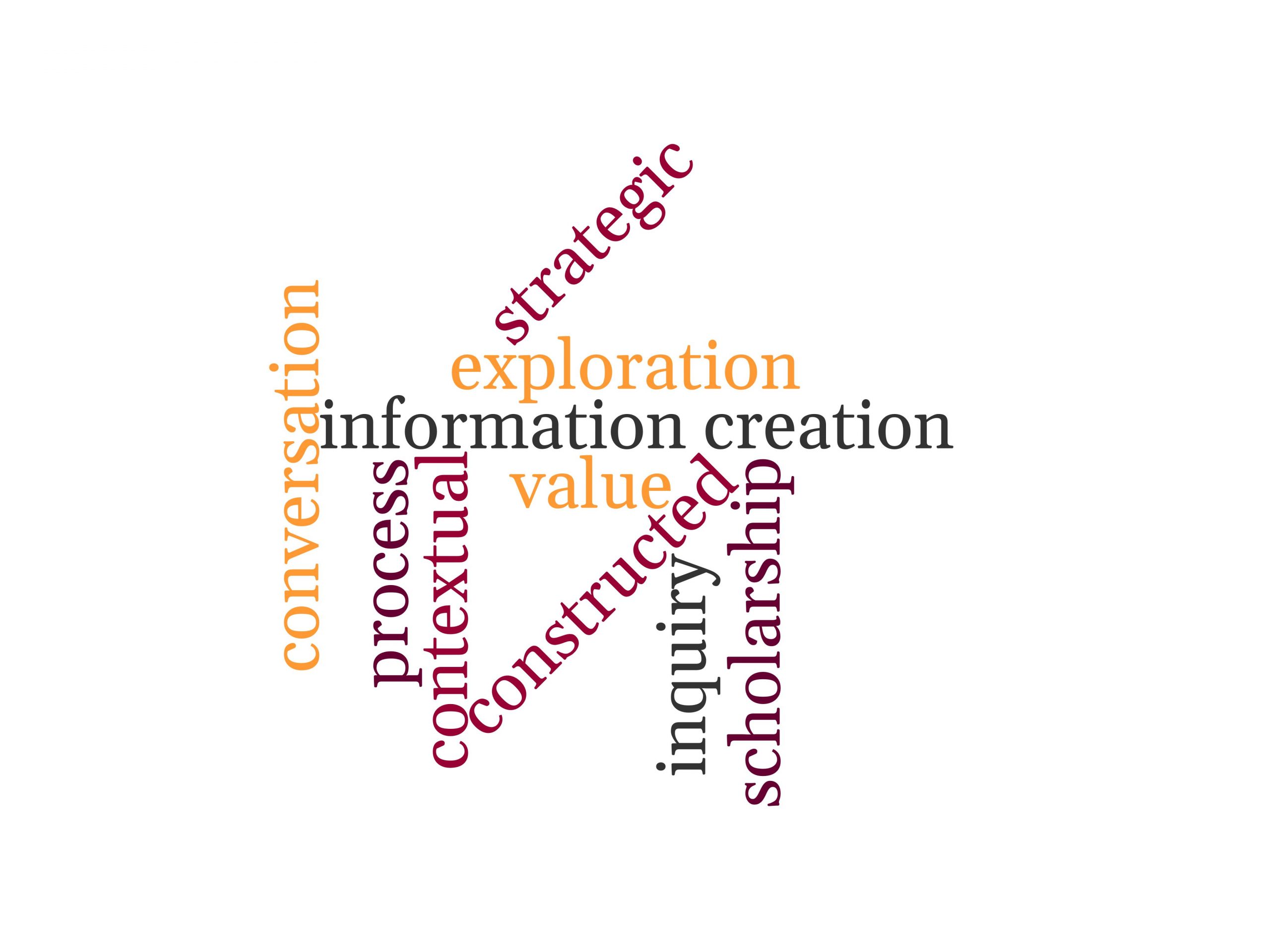New Lens of Information Literacy
Research Needs
Our quest for quality sources is more challenging then ever. Not only has information itself become more complex, but the places it lives and the ways to access it are more confusing.
Before you start your search to meet your own (course’s) information needs, it’s worth taking some time to consider how your understanding of information will continue to be challenged and evolve as you complete your academic work.

Setting Up the Six
The Framework offered here is called a framework intentionally because it is based on a cluster of interconnected core concepts, with flexible options for implementation, rather than on a set of standards or learning outcomes, or any prescriptive enumeration of skills. At the heart of this Framework are conceptual understandings that organize many other concepts and ideas about information, research, and scholarship into a coherent whole.
These conceptual understandings are informed by the work of Wiggins and McTighe, which focuses on essential concepts and questions in developing curricula, and also by threshold concepts which are those ideas in any discipline that are passageways or portals to enlarged understanding or ways of thinking and practicing within that discipline. This Framework draws upon an ongoing Delphi Study that has identified several threshold concepts in information literacy, but the Framework has been molded using fresh ideas and emphases for the threshold concepts.
Two added elements illustrate important learning goals related to those concepts: knowledge practices, which are demonstrations of ways in which learners can increase their understanding of these information literacy concepts, and dispositions, which describe ways in which to address the affective, attitudinal, or valuing dimension of learning. The Framework is organized into six frames, each consisting of a concept central to information literacy, a set of knowledge practices, and a set of dispositions.

